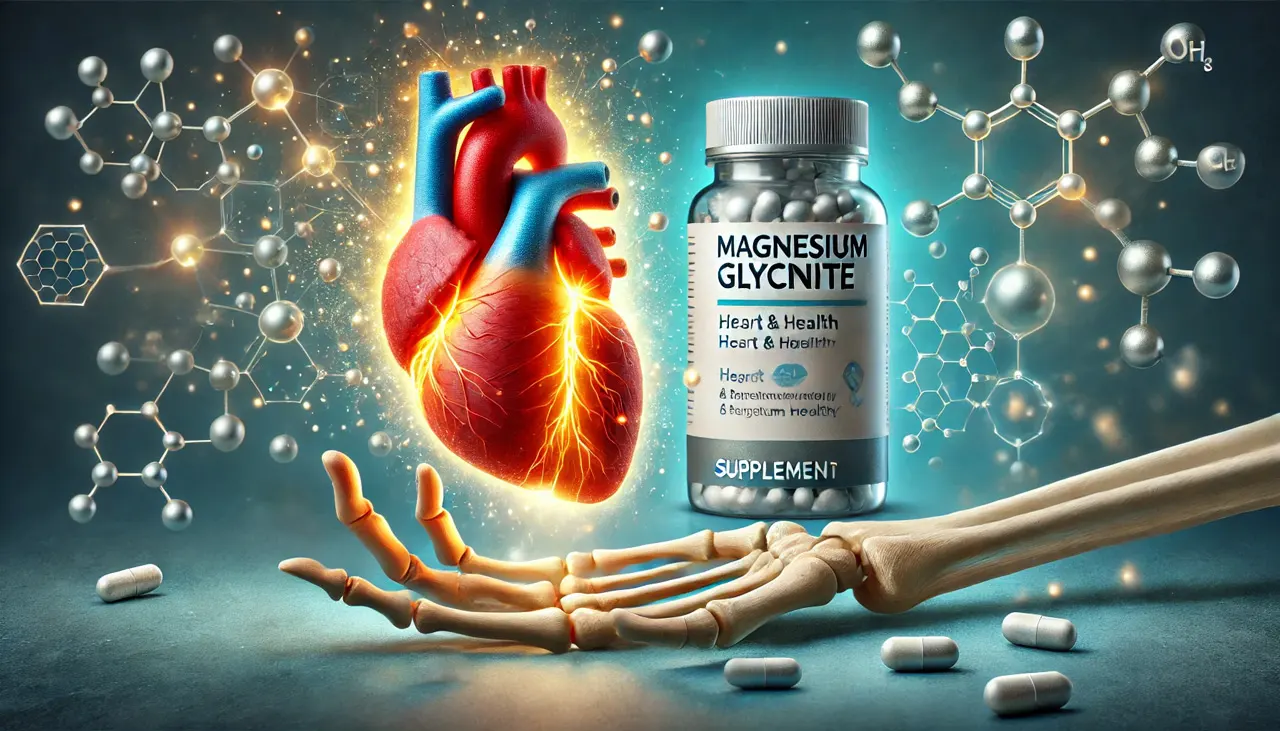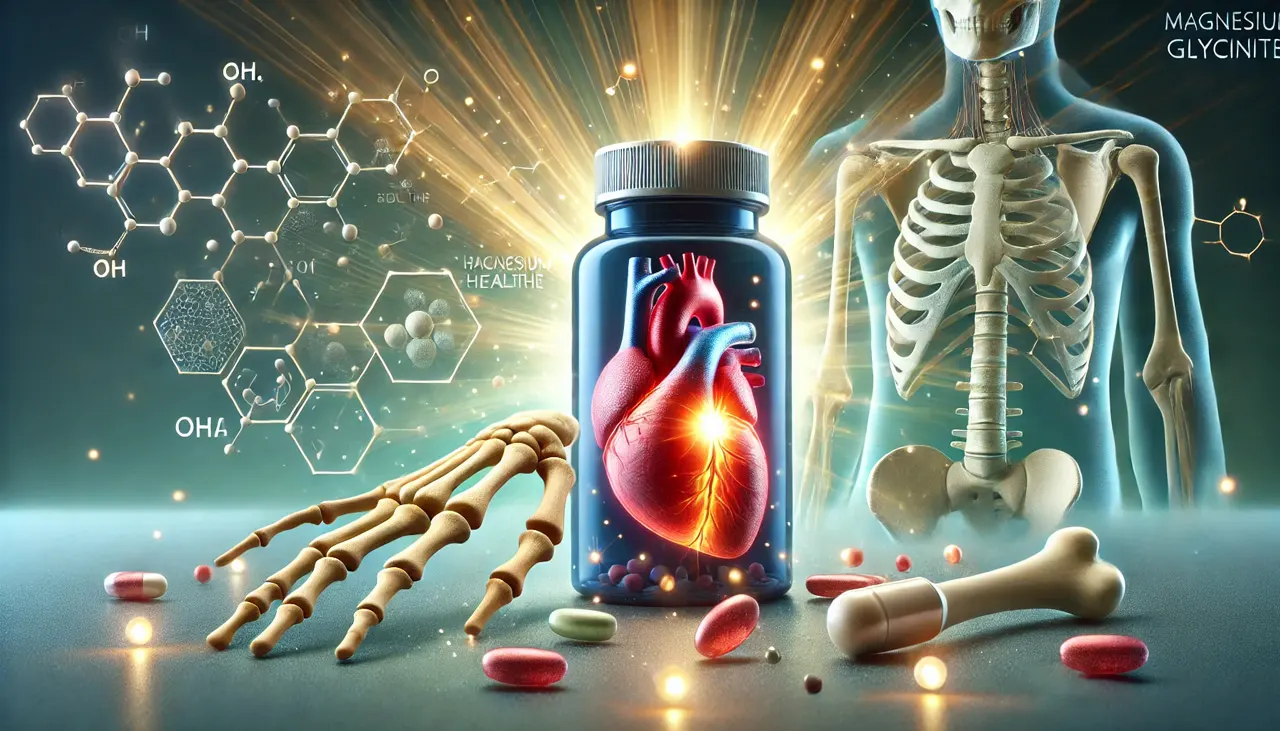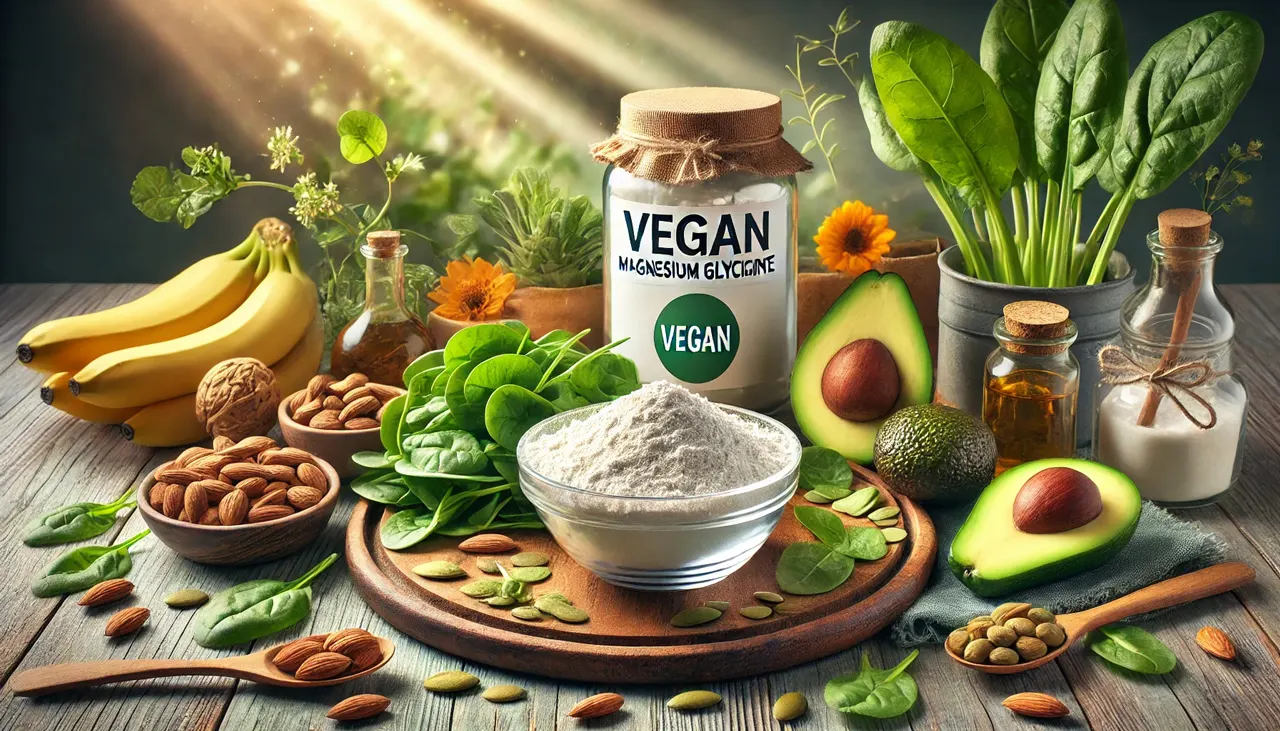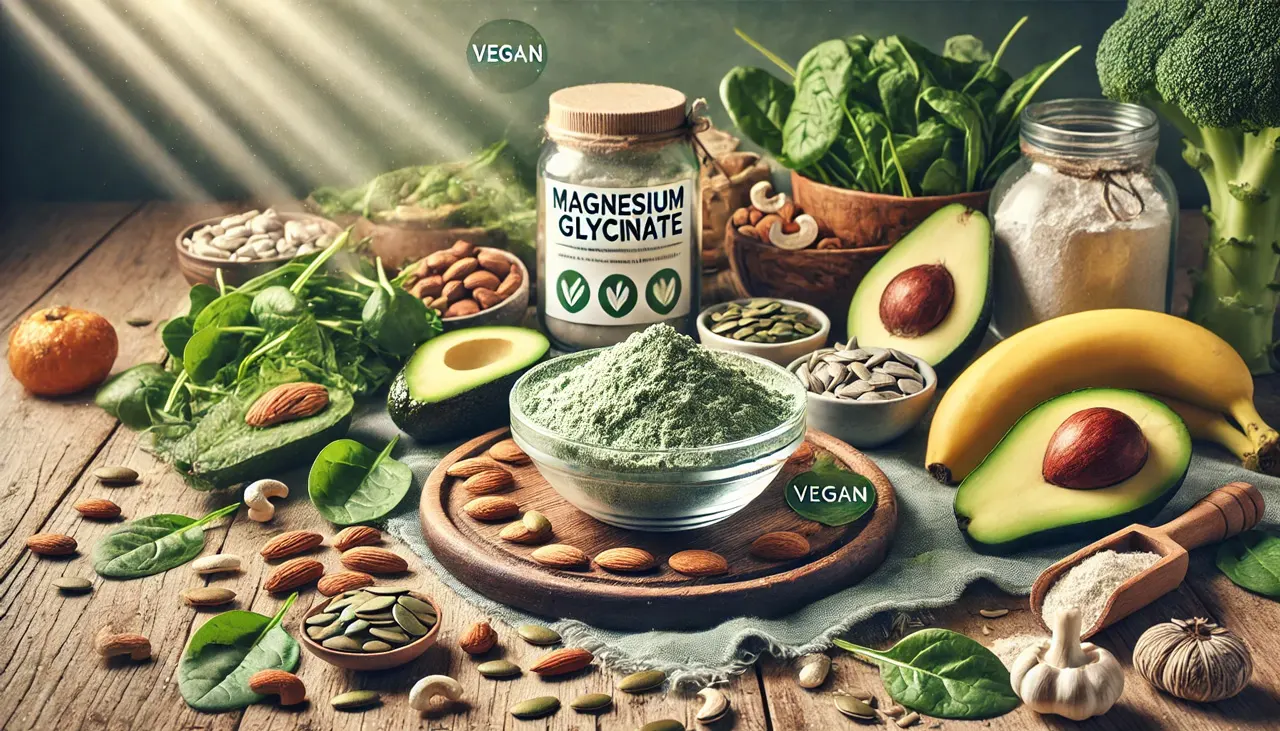Vegetarian and vegan diets are celebrated for their numerous health benefits, including reduced risks of chronic diseases and a smaller environmental footprint. However, individuals following plant-based diets may face specific nutrient challenges, including magnesium intake. Magnesium, a critical mineral for over 300 enzymatic processes, is vital for energy production, muscle function, and overall well-being. While plant-based diets often include magnesium-rich foods, factors such as soil depletion, dietary inhibitors, and individual needs can contribute to insufficient intake. Magnesium glycinate, a highly bioavailable form of magnesium, offers an effective solution for filling dietary gaps. This article explores why magnesium glycinate is an essential supplement for vegetarian and vegan lifestyles.
You May Also Like:
Magnesium Glycinate Supplement: A Comprehensive Guide to Long-Term Supplementation
The Science of Magnesium Glycinate and its Impact on Brain Function
Magnesium Glycinate for Vegans and Vegetarians: A Nutritional Ally for Optimal Health is an original (HSLHealing) article.
The Importance of Magnesium in Health
Magnesium plays a pivotal role in various physiological processes, including:
- Energy Production:
- Magnesium is a cofactor in ATP synthesis, the body’s primary energy molecule.
- Nervous System Regulation:
- Magnesium modulates neurotransmitters like gamma-aminobutyric acid (GABA), promoting relaxation and stress reduction.
- Bone Health:
- Magnesium supports calcium metabolism, enhancing bone density and reducing the risk of osteoporosis.
- Cardiovascular Health:
- Magnesium relaxes blood vessels, lowering blood pressure and improving circulation.
Despite its importance, magnesium deficiency is widespread. A 2018 report in Nutrients revealed that nearly 50% of adults in industrialized countries fail to meet the recommended daily intake for magnesium, with plant-based eaters at particular risk due to dietary inhibitors.

The Magnesium Challenge for Plant-Based Diets
While vegetarian and vegan diets can provide magnesium through foods like nuts, seeds, legumes, and leafy greens, several factors may limit absorption or increase needs:
- Soil Depletion:
- Modern farming practices have reduced magnesium levels in soil, leading to lower magnesium content in plant-based foods.
- Dietary Inhibitors:
- Phytates and oxalates, common in plant-based diets, bind to magnesium and reduce its bioavailability.
- Higher Magnesium Requirements:
- Plant-based eaters often consume higher levels of fiber, which, while healthy, can increase magnesium excretion.
Promote Cardiovascular Wellness and Healthy Metabolism with Magnesium Glycinate—Buy Now on Amazon!

Why Magnesium Glycinate?
Magnesium glycinate is a chelated form of magnesium, where magnesium ions are bound to glycine, an amino acid. This formulation offers unique benefits for vegetarian and vegan individuals:
- High Bioavailability:
- Magnesium glycinate is better absorbed than inorganic forms like magnesium oxide or sulfate. A 2012 study in Magnesium Research demonstrated that glycinate raised magnesium levels more effectively than other forms.
- Gentle on Digestion:
- Unlike magnesium citrate or sulfate, which can cause gastrointestinal discomfort, magnesium glycinate is well-tolerated, even at higher doses.
- Additional Benefits of Glycine:
- Glycine promotes relaxation, improves sleep quality, and supports collagen production, complementing magnesium’s effects.
Magnesium Glycinate for Common Nutritional Gaps in Plant-Based Diets
1. Supporting Energy Levels
Plant-based eaters often rely on carbohydrates and plant proteins for energy, but magnesium is crucial for converting these macronutrients into ATP. A magnesium deficiency can lead to fatigue, muscle weakness, and decreased exercise performance.
Clinical Evidence: A 2018 study in Metabolism found that magnesium supplementation improved energy levels in 35% of participants who followed a vegan diet. Magnesium glycinate was particularly effective due to its superior absorption.
2. Enhancing Bone Health
Vegetarians and vegans are often at risk for lower bone density due to limited intake of calcium and vitamin D. Magnesium plays a synergistic role in bone health by:
- Enhancing calcium absorption.
- Promoting bone mineralization.
Clinical Evidence: A study in Osteoporosis International (2017) found that women with higher magnesium intake had 12% greater bone density compared to those with lower intake. Supplementing with magnesium glycinate further improved markers of bone health, especially when combined with calcium and vitamin D.
3. Improving Muscle Function
Plant-based diets are rich in potassium but may lack adequate magnesium to balance muscle function. Magnesium glycinate helps:
- Prevent muscle cramps by regulating calcium and potassium levels.
- Reduce exercise-induced fatigue and soreness.
Clinical Evidence: A 2020 study in Journal of Sports Medicine highlighted that magnesium supplementation reduced muscle cramps in 40% of vegan athletes. Magnesium glycinate stood out for its ability to replenish magnesium stores without causing gastrointestinal issues.

4. Combating Stress and Enhancing Sleep
Vegetarian and vegan diets often emphasize wellness, but stress and sleep challenges can arise due to nutrient gaps. Magnesium glycinate addresses these issues by:
- Promoting GABA activity to reduce anxiety.
- Enhancing melatonin production for better sleep quality.
Clinical Evidence: A 2019 study in Psychosomatic Medicine found that magnesium glycinate improved sleep quality by 38% and reduced stress markers in individuals on plant-based diets. Participants reported fewer nighttime awakenings and greater relaxation.
5. Supporting Cardiovascular Health
Plant-based diets are naturally heart-healthy, but magnesium further enhances cardiovascular benefits by:
- Lowering blood pressure.
- Improving endothelial function and reducing inflammation.
Clinical Evidence: Research published in Hypertension (2018) showed that magnesium supplementation reduced systolic blood pressure by an average of 4 mmHg. Magnesium glycinate was particularly effective for individuals consuming plant-based diets rich in potassium and fiber.

How to Incorporate Magnesium Glycinate into a Plant-Based Lifestyle
Dosage Recommendations
- The recommended dietary allowance (RDA) for magnesium is 310–420 mg/day for adults. A therapeutic dose of 200–400 mg of elemental magnesium from magnesium glycinate is often recommended for supplementation.
- Dosages should be adjusted based on individual needs, particularly for athletes or individuals under stress.
Timing and Administration
- Evening Use: Magnesium glycinate’s calming properties make it ideal for nighttime supplementation to enhance relaxation and sleep.
- With Meals: Taking magnesium glycinate with food improves absorption and minimizes the risk of stomach upset.
Dietary Sources
While supplementation is key, plant-based magnesium-rich foods can complement magnesium glycinate:
- Almonds and cashews.
- Spinach and kale.
- Avocados and bananas.
- Pumpkin and sunflower seeds.

Potential Side Effects and Safety
Magnesium glycinate is well-tolerated and has a low risk of side effects. However:
- Excessive intake can lead to mild gastrointestinal symptoms, such as diarrhea or nausea.
- Individuals with kidney disorders or those on medications like diuretics should consult a healthcare provider before starting supplementation.
Conclusion
Magnesium glycinate is a valuable tool for addressing the unique nutritional challenges faced by vegetarians and vegans. Its high bioavailability, gentle digestion profile, and dual-action benefits of magnesium and glycine make it an essential supplement for supporting energy, muscle function, bone health, sleep, and cardiovascular well-being.As plant-based eating continues to grow in popularity, magnesium glycinate provides a simple, effective solution for maintaining optimal health and filling dietary gaps. Whether you’re a dedicated vegan, a flexitarian, or simply exploring plant-based options, magnesium glycinate can play a key role in enhancing your overall well-being.

References
- Magnesium and type 2 diabetes. Retrieved from: https://pubmed.ncbi.nlm.nih.gov/26322160/
- Impact of magnesium on bone health in older adults: A systematic review and meta-analysis. Retrieved from: https://pubmed.ncbi.nlm.nih.gov/34666201/
- Effects of Magnesium Supplementation on Muscle Soreness and Performance. Retrieved from: https://pubmed.ncbi.nlm.nih.gov/33009349/
- The role of magnesium in hypertension and cardiovascular disease. Retrieved from: https://pubmed.ncbi.nlm.nih.gov/22051430/
- The Role of Magnesium in Sleep Health: a Systematic Review of Available Literature. Retrieved from: https://pubmed.ncbi.nlm.nih.gov/35184264/
Important Note: The information contained in this article is for general informational purposes only, and should not be construed as health or medical advice, nor is it intended to diagnose, prevent, treat, or cure any disease or health condition. Before embarking on any diet, fitness regimen, or program of nutritional supplementation, it is advisable to consult your healthcare professional in order to determine its safety and probable efficacy in terms of your individual state of health.
Regarding Nutritional Supplements Or Other Non-Prescription Health Products: If any nutritional supplements or other non-prescription health products are mentioned in the foregoing article, any claims or statements made about them have not been evaluated by the U.S. Food and Drug Administration, and such nutritional supplements or other health products are not intended to diagnose, treat, cure, or prevent any disease.

